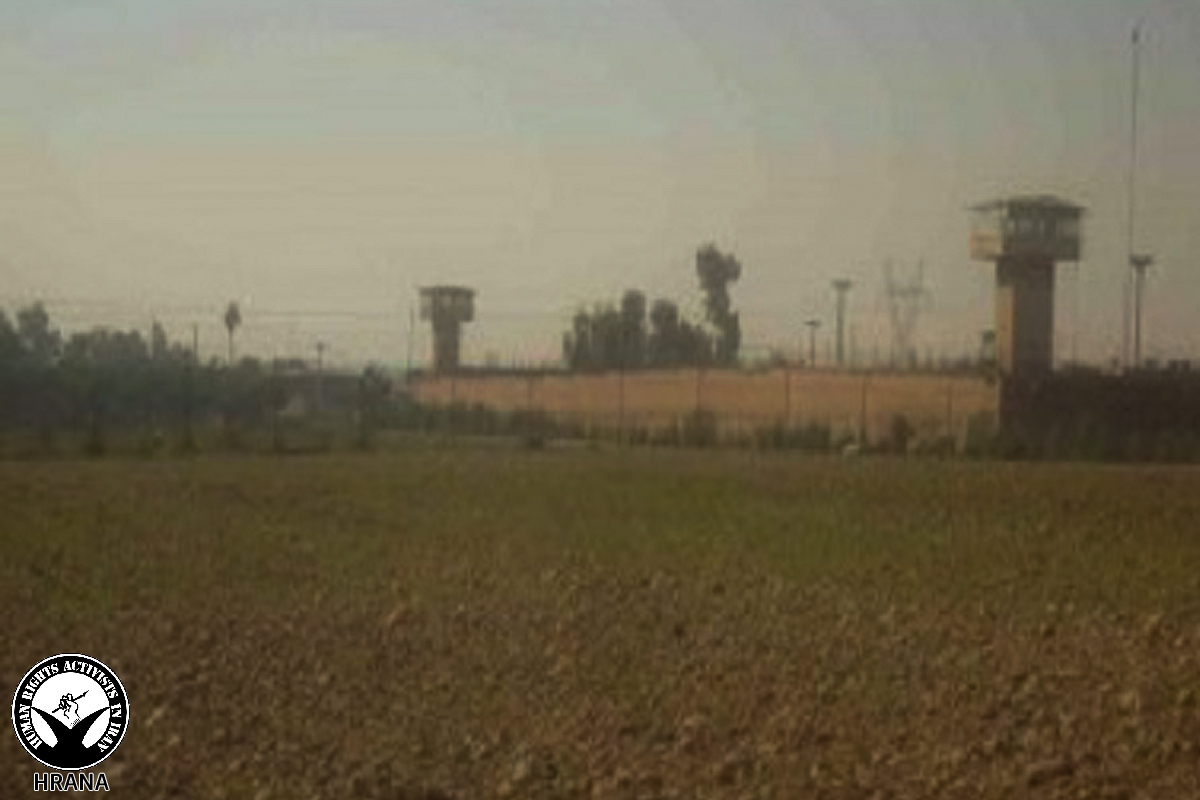The following is an overview of human rights violations in Iran on December 10th,2018 based on the information compiled and verified by Human Rights Activists NewsAgency (HRANA).
(1) Four Workers Were Injured or Died in Their Workplaces
(2) An Execution in Urmia
(3) Five Citizens Were Saved from Execution in Shushtar
(4) The Businesses of 17 Baha’i Citizens Were Shut Down
(5) The State’s Welfare Organization has requested to monitor Fashafoyeh prison.
(6) An activist in Adel Abad prison was deprived from getting pharmaceutical drug
(7) Political Prisoners in Ardabil Prison Went on Strike
(8) Child Maltreatments in Mahabad and Harsin
(9) Atena Daemi’s open letter on Human Rights Violations in Gharchak Prison
(10) More from Iran
(1) Four Workers Were Injured or Died in Their Workplaces
Inthe last two days, four workers were injured or died in their workplaces in Iran. Two workers who were 35 and 40 years old and citizens of Afghanistan, were injured in a construction incident in Tehran. According to Iranian Labor News Agency (ILNA), in Rasht, a 45 years old worker of a dairy company, died by electrical shock in the workplace. Moreover, Baloch activists campaign reported the death of a 35 years old construction worker in his workplace in Iranshahr.
(2) An Execution in Urmia
In the morning of December 10, 2018, a prisoner in Urmia prison was executed.Younes Azizi was transferred to a solitary confinement earlier. He was from Naqadeh a city in West Azerbaijan and was accused of drug crimes.
(3) Five Citizens Were Saved from Execution in Shushtar
Iranian Labor News Agency (ILNA) reported that five individuals who were arrested with a murder charge, finally were saved from execution in jail by the help of judicial authorities and victims’ families’ consent. They had spent the last 4 years waiting for the execution in prison. The murder took place in 2014 in a tribal fight. Four people died, and more than 40 people were injured in that incident in second district of Zouyie village which is in Shadravan district in Shushtar County in the Khuzestan province.
(4) The Businesses of 17 Baha’i Citizens Were Shut Down
The businesses of 17 Baha’i citizens were shut down in Kerman. Their appeal was rejected in the Administrative Justice court. They requested to cancel the minutes which was issued by the Governor General of Kerman. Due to the aforementioned minutes of limiting financial activities of Baha’i citizens,their businesses were shut down in 2016 because they closed their businesses temporarily for their religious rituals.
(5) The State’s Welfare Organization has requested to monitor Fashafoyeh prison.
Farid Baratisadeh, Deputy Director of Prevention state’s Welfare Organization has requested to monitor Fashafoyeh prison. He emphasized that although the supervising of the addicted facilities is included in the state’s Welfare Organization’s responsibility, but this organization never got the chance to supervise on Fashafoyeh prison.
(6) An activist in Adel Abad prison was deprived from getting pharmaceutical drug
Majid Azizi, a civil activist from Shiraz who is in Adel Abad prison was deprived from getting pharmaceutical drug by prison officials. His family are concerned about his health. On November 19, 2018 he was transferred to Adel Abad in Shiraz for his one-year imprisonment.
(7) Political Prisoners in Ardabil Prison Went on Strike
Political prisoners in Ardabil prison went on strike from December 9, 2018. They are protesting the transfer of an infected contagious prisoner to their prison without informing the other inmates, and the other limitations such as cutting off the phone in prison.
(8) Child Maltreatments in Mahabad and Harsin
The head of State Welfare Organization’s office of Harsin confirmed that a five-year-old girl who does not have any birth certificate and gathers garbage’s was transferred to the state Welfare office of this city. In another case in Mahabad, a six-year-old who had been abused by her mother and was hospitalized for her injuries, was transferred to the city’s State Welfare office. Mahabad and Harsin are in Azarbaijan and Kermanshah provinces.
(9) Atena Daemi’s open letter on Human Rights Violations in Gharchak Prison
Atena Daemi, an imprisoned activist wrote an open letter for international day of Human Right about human rights violations in Gharchak prison. She wrote about sanitary in this prison “there is not any spot clear from blood and vomit”. She also mentioned that the quality of water is low, there is no dental health, and prisoners’ hands and legs are swollen. Overall, there is a very limited access to the medical care and it would be humiliating and offensive.
(10) More from Iran
Ghasem Shole Sa’adi and Arash Keykhosravi, attorney at laws were sentenced to six years in prison by branch 15 of Islamic Revolutionary Court.
Hamidreza Rahmati,a teacher activist, has ended his sit-in by the Shahreza’s Ministry of Education office. He was protesting the arrest of the teachers during teachers’ strikes since December 1st, 2018.
The 21st day of detention of Ismael Bakhshi, laborer activist and Sepideh Gholian, civil activist. They were arrested in course of Haft Tappeh Sugarcane Agro-Business protests.
Arman Ghafouri, the resident of Marivan, was released on bail temporary on December 10, 2018.
On Sunday, December 9th, the Human Right Committee of Lawyers, organized a conference for the international “Human Rights Day” which marks the 70th anniversary of the Universal Declaration of Human Rights with the subject of“celebrating the differences”. Mohammad Hashemi, Afshin Ala, Hatam Ghaderi and Saeed Madani were some of the lecturers of this conference.



